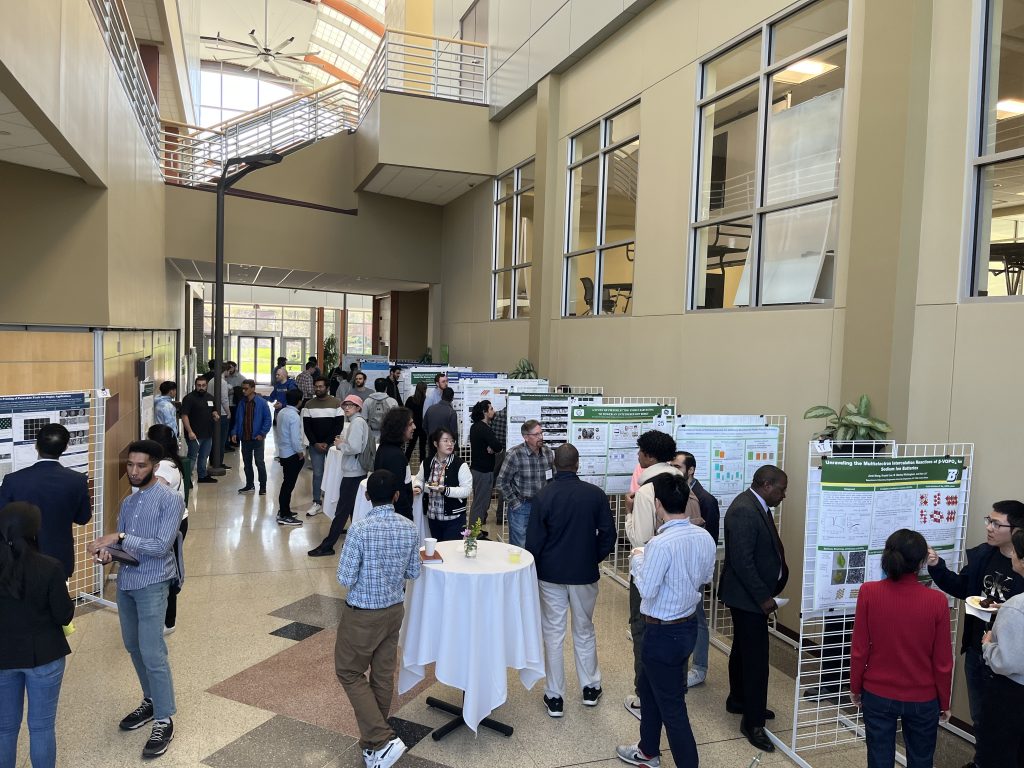Cornell University’s dean of engineering visited Binghamton University to give a keynote speech at the Smart Energy Symposium on Thursday.
The convention was organized by BU’s Materials Research Society (MRS) — an interdisciplinary organization dedicated to “research on materials of technological importance” — in conjunction with faculty advisors M. Stanley Whittingham, a Nobel laureate and distinguished professor of chemistry, and Mark Poliks, a SUNY distinguished professor and the director of the Center for Advanced Microelectronics Manufacturing (CAMM). Hosting “high-level researchers,” like Lynden Archer, Cornell’s dean of engineering, the symposium connected academics, students and industry partners to foster engagement between them. Following the speech, students from various academic fields were invited to present posters broadly related to “smart energy,” with the top-three audience favorites winning a total of $600.
Isik Su Buyuker, the president of BU’s chapter of the MRS and a fourth-year graduate student pursuing a Ph.D. in materials science and engineering, described the academic and professional diversity in attendance.
“Our local chapter hosts events like this symposium [as well as] gatherings, such as journal clubs — [scientific gatherings to discuss academic articles in research journals] — to bring the interdisciplinary materials researchers together,” Buyuker wrote in an email. “This symposium alone will have people from more than 10 disciplines in attendance and [several] battery industry members.”
The materials science and engineering program at BU, connected closely with the MRS chapter, lists “[developing] the material technologies needed to advance energy independence, medical devices and electronic devices,” as one of its goals. The organization, which became dormant during COVID-19, was recently restarted during the fall 2022 semester through the reintroduction of social events and the starting of collaborative research, according to Buyuker.
Opened by BU President Harvey Stenger, who previously served as dean of the School of Engineering and Applied Sciences at the University at Buffalo, the conference explored challenges in power storage and sustainable energy. Stenger commended the dedication of attendees.
“Working on all of the aspects of renewable energy [and] renewable materials is a huge challenge for our engineers and scientists in the future,” Stenger said. “Having these in-person events, these conversations and these presentations [are] critical to the scientific method.”
Archer’s keynote, titled “Electrochemical Interphases at Metal Anodes in Slow- and Fast-Charge Batteries,” focused on challenges in resolving long-standing technical problems associated with metal batteries. After summarizing recent studies in the field and the economic issues related to cost and scale, Archer looked toward the future of renewable energies, presenting and evaluating design concepts for future batteries.
Dylan Richmond, the secretary of the MRS and a fourth-year graduate student pursuing a Ph.D. in materials science and engineering, expanded on the program’s position within the science community at BU.
“Materials research plays a vital foundational role in almost every scientific field,” Richmond wrote in an email. “We learn foundations from our colleagues in physics, chemistry and mechanical engineering [and] apply [them] to create systems of materials that we study and evaluate under various criteria, so that we can select materials to solve our everyday problems, such as sustainable energy generation or storage.”
Regarding the keynote address, Omar Faruk, the vice president of the MRS and a second-year Ph.D. student studying materials science and engineering, praised Archer’s qualifications and knowledge.
“Archer is a world-[renowned] scientist, working on understanding how the different polymers and particles behave at the liquid-solid interfaces to build novel inorganic-organic hybrid structures,” Faruk wrote in an email. “I think having an expert like him as a keynote speaker [will] be a great opportunity for the materials research community to learn [about] how cost-effective and safer batteries can be developed that can store energy for the long term.”



